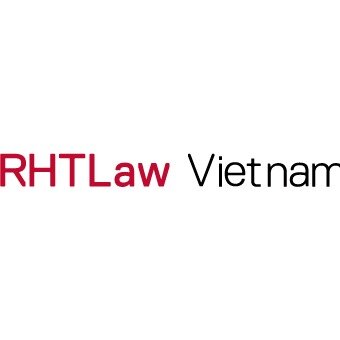Best Landlord & Tenant Lawyers in Vietnam
Share your needs with us, get contacted by law firms.
Free. Takes 2 min.
Free Guide to Hiring a Real Estate Lawyer
Or refine your search by selecting a city:
List of the best lawyers in Vietnam
About Landlord & Tenant Law in Vietnam
Landlord and tenant law in Vietnam governs the rights and obligations of parties involved in a rental agreement. The principal legislation regulating this field is the Law on Housing 2014 (amended in 2020) and the Civil Code 2015, which provide a framework for the legal relationship between landlords and tenants. The law provides guidelines on lease agreements, rental conditions, termination of contracts, and dispute resolution, aimed at ensuring fair and equitable treatment of both parties involved in the rental of residential and commercial properties.
Why You May Need a Lawyer
Engaging with a lawyer specializing in landlord and tenant law in Vietnam may be beneficial in several situations:
- Drafting or Reviewing Leases: Ensuring that lease agreements comply with statutory requirements and protect your interests.
- Dispute Resolution: Resolving conflicts regarding lease terms, rent increases, or deposit returns can require mediation or court involvement.
- Eviction Proceedings: Navigating the legal process of eviction, whether you are a landlord initiating proceedings or a tenant contesting them.
- Property Damage Claims: Addressing claims for property damage or negligence effectively and legally.
- Understanding Legal Rights: Gaining clarity on tenants’ rights to repairs and quiet enjoyment, or landlords’ rights to enter the property.
Local Laws Overview
Key components of landlord and tenant laws in Vietnam include:
- Lease Agreement Requirements: Leases must be in writing if they exceed six months and should include details about the property, rent amount, lease duration, and the rights and obligations of each party.
- Security Deposits: Generally equivalent to one to three months' rent, intended to cover any potential damage caused by the tenant.
- Rent Control: There are no specific laws on rent control; however, leases typically dictate rent increase terms.
- Obligations for Maintenance: Landlords are usually responsible for major repairs and maintenance, while tenants should keep the property clean and report damages.
- Termination of Lease: Must follow statutory notice periods, and reasons for termination should comply with the agreed terms in the lease and relevant laws.
Frequently Asked Questions
What are the typical lengths of residential leases in Vietnam?
Most residential leases in Vietnam have a duration of one year, though they can vary based on mutual agreement. Leases longer than six months must be in writing.
Can a landlord terminate a lease early?
A landlord can terminate a lease early only for specific reasons, such as breach of contract by the tenant, and must provide advance notice as stipulated by the lease or law.
Are tenants in Vietnam protected against wrongful eviction?
Yes, tenants have legal protection against wrongful eviction. Eviction without a court order or appropriate legal grounds is not permissible.
What should a tenant do if a landlord fails to make necessary repairs?
Tenants should first notify the landlord in writing. If the landlord fails to respond, tenants can seek legal advice or mediation through local housing authorities.
Is subletting allowed in Vietnam?
Subletting is only allowed if the lease agreement explicitly permits it. Tenants should obtain written consent from their landlord before subletting.
Are there any restrictions on rent increases?
While there are no statutory restrictions on rent increases, increases should conform to the terms outlined in the lease agreement.
How are security deposits managed?
Security deposits are typically retained by landlords to cover potential property damage or defaults in rent payment, and should be returned at the end of the lease if there are no such issues.
Do tenants have to provide a notice before vacating?
Tenants must provide notice as specified in the lease, typically 30 days, unless a different period is agreed upon.
What are the rights of a tenant regarding maintenance and repairs?
Tenants are entitled to reside in a property that meets basic living standards. Landlords are generally responsible for major repairs, while tenants should maintain cleanliness.
How can disputes between landlords and tenants be resolved?
Disputes can be resolved through negotiation, mediation, or, if necessary, legal proceedings in a court of law.
Additional Resources
Individuals seeking more information or assistance regarding landlord and tenant issues in Vietnam can consider contacting the following resources:
- Ministry of Construction: Oversees housing and construction policies.
- Local Housing Authorities: Can provide guidance on tenant rights and dispute resolution.
- Vietnam Bar Federation: Offers referrals to qualified legal practitioners.
- Consumer Protection Organizations: Provide advice and support to tenants facing housing issues.
Next Steps
If you require legal assistance regarding landlord and tenant issues in Vietnam, consider the following steps:
- Consultation: Arrange a consultation with a lawyer specializing in real estate or housing law to discuss your situation.
- Document Review: Have any relevant documents, such as lease agreements, reviewed by legal counsel for advice on your rights and obligations.
- Mediation: Engage in mediation to resolve disputes amicably if possible.
- Legal Action: If necessary, be prepared to initiate legal proceedings under the guidance of your legal advisor.
Lawzana helps you find the best lawyers and law firms in Vietnam through a curated and pre-screened list of qualified legal professionals. Our platform offers rankings and detailed profiles of attorneys and law firms, allowing you to compare based on practice areas, including Landlord & Tenant, experience, and client feedback.
Each profile includes a description of the firm's areas of practice, client reviews, team members and partners, year of establishment, spoken languages, office locations, contact information, social media presence, and any published articles or resources. Most firms on our platform speak English and are experienced in both local and international legal matters.
Get a quote from top-rated law firms in Vietnam — quickly, securely, and without unnecessary hassle.
Disclaimer:
The information provided on this page is for general informational purposes only and does not constitute legal advice. While we strive to ensure the accuracy and relevance of the content, legal information may change over time, and interpretations of the law can vary. You should always consult with a qualified legal professional for advice specific to your situation.
We disclaim all liability for actions taken or not taken based on the content of this page. If you believe any information is incorrect or outdated, please contact us, and we will review and update it where appropriate.
Browse landlord & tenant law firms by city in Vietnam
Refine your search by selecting a city.

















